Currently, open data are available from the following locations: ECMWF Data Store (ECPDS), Amazon’s AWS, Google Cloud, Microsoft’s Azure, and Open-meteo.
ECMWF Data Store (ECPDS)¶
It offers datasets from current date and up to four days before today.
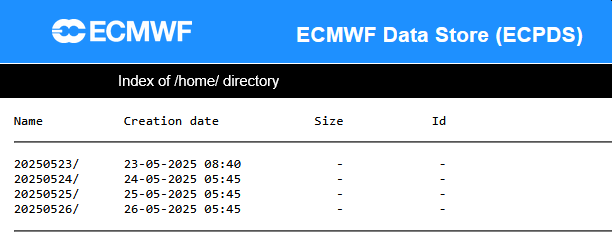
Amazon’s AWS¶
It hosts data from 2023 to 2025.
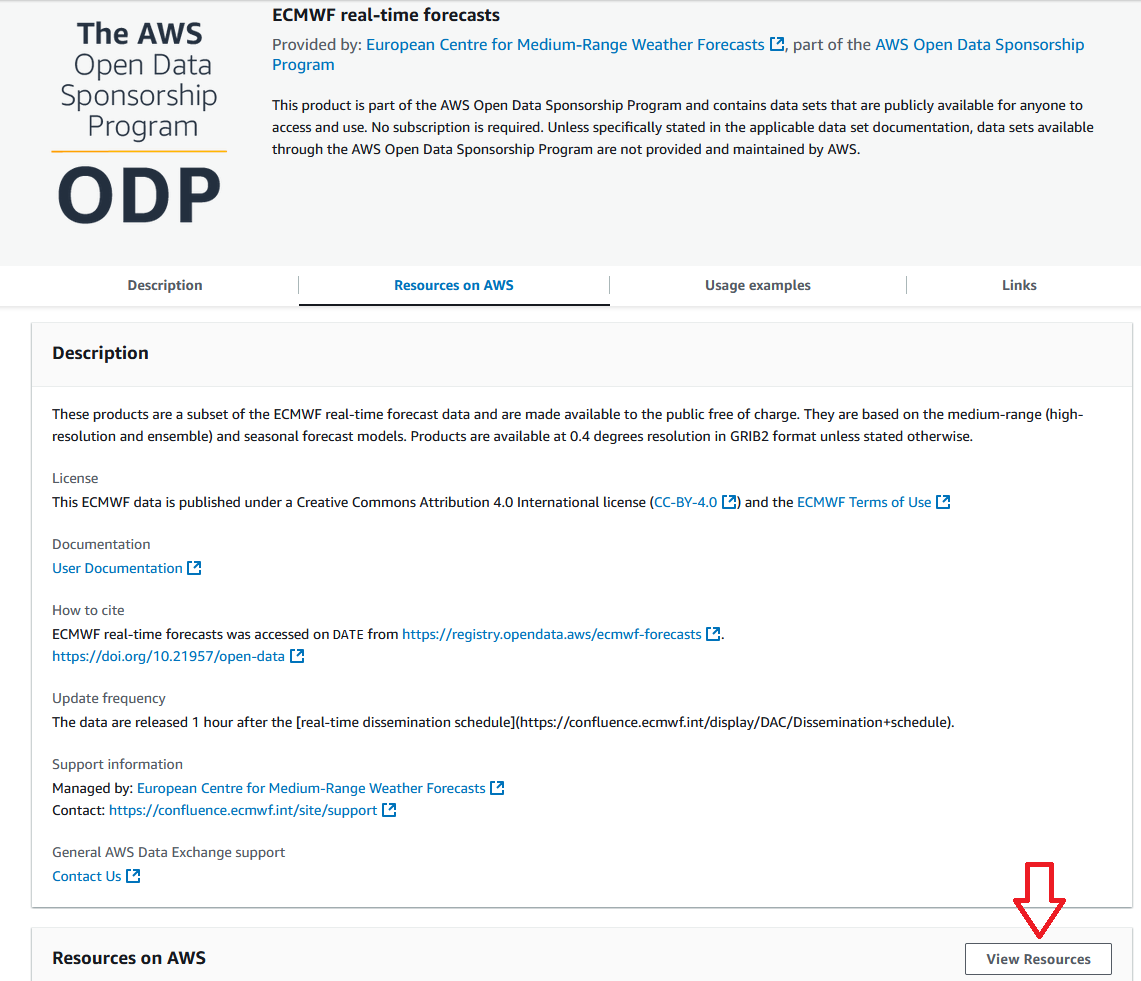
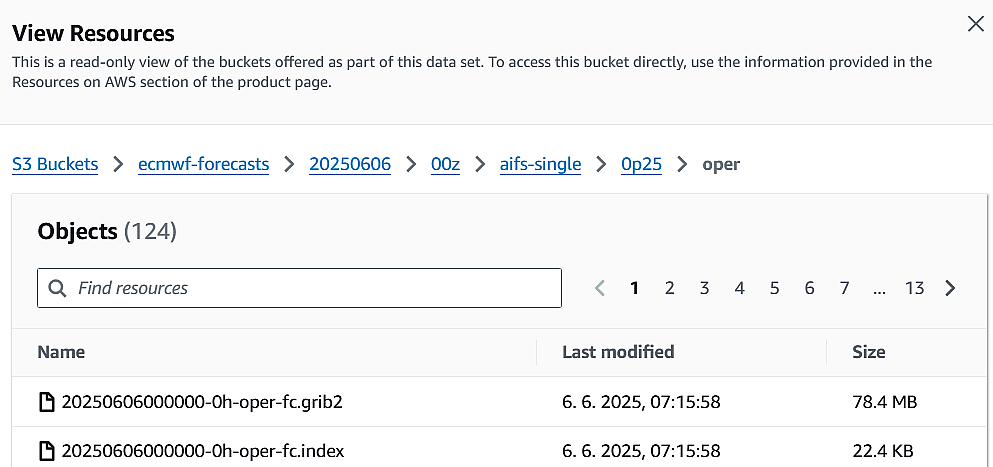
Google Cloud¶
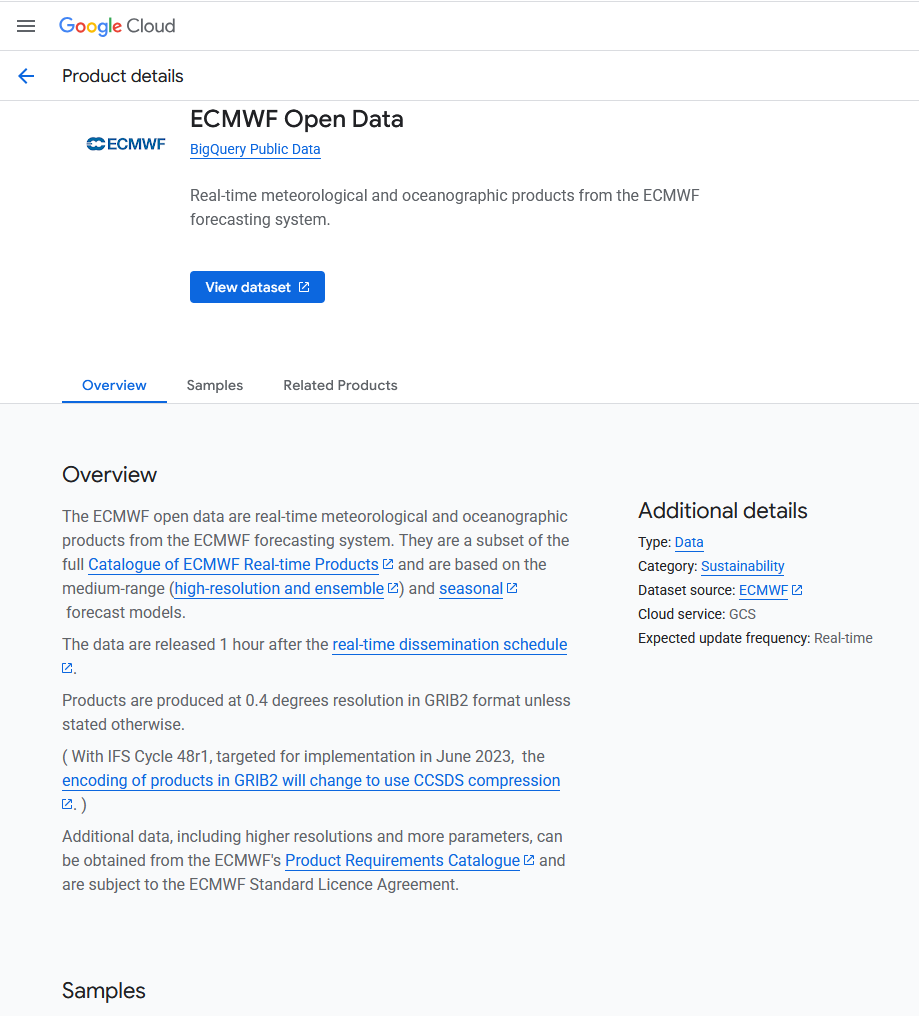
Microsoft Azure¶
It makes the ECMWF products available for the previous 30 days.
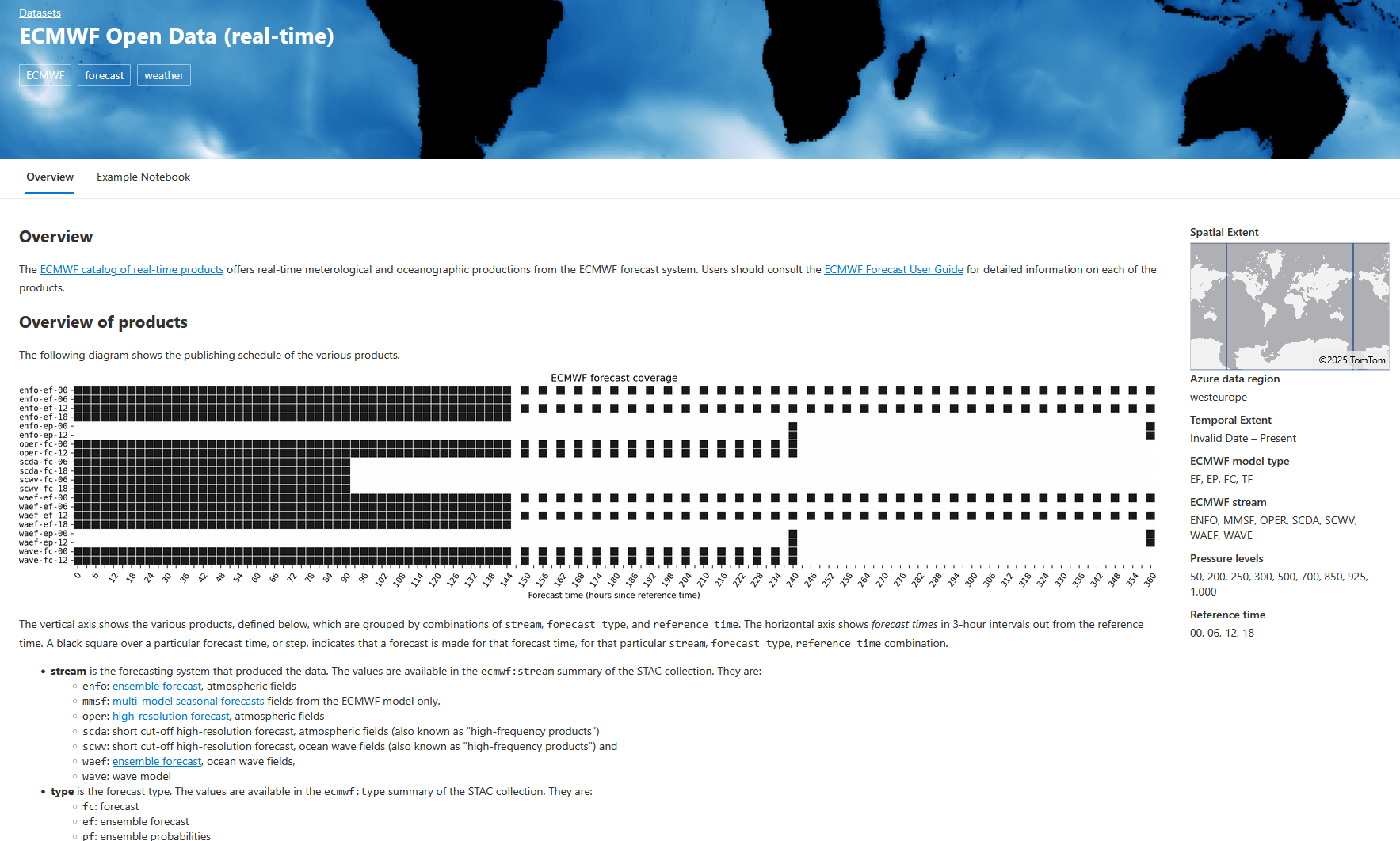
To access data, users are required to utilise tokens created by the Data Authentication API. Public access is not permitted on every data sets. For more information, see the Planetary Computer documentation.
Open-Meteo¶
With an open-source weather API one can access forecast data for up to 16 days or historical data from 2017 onwards.
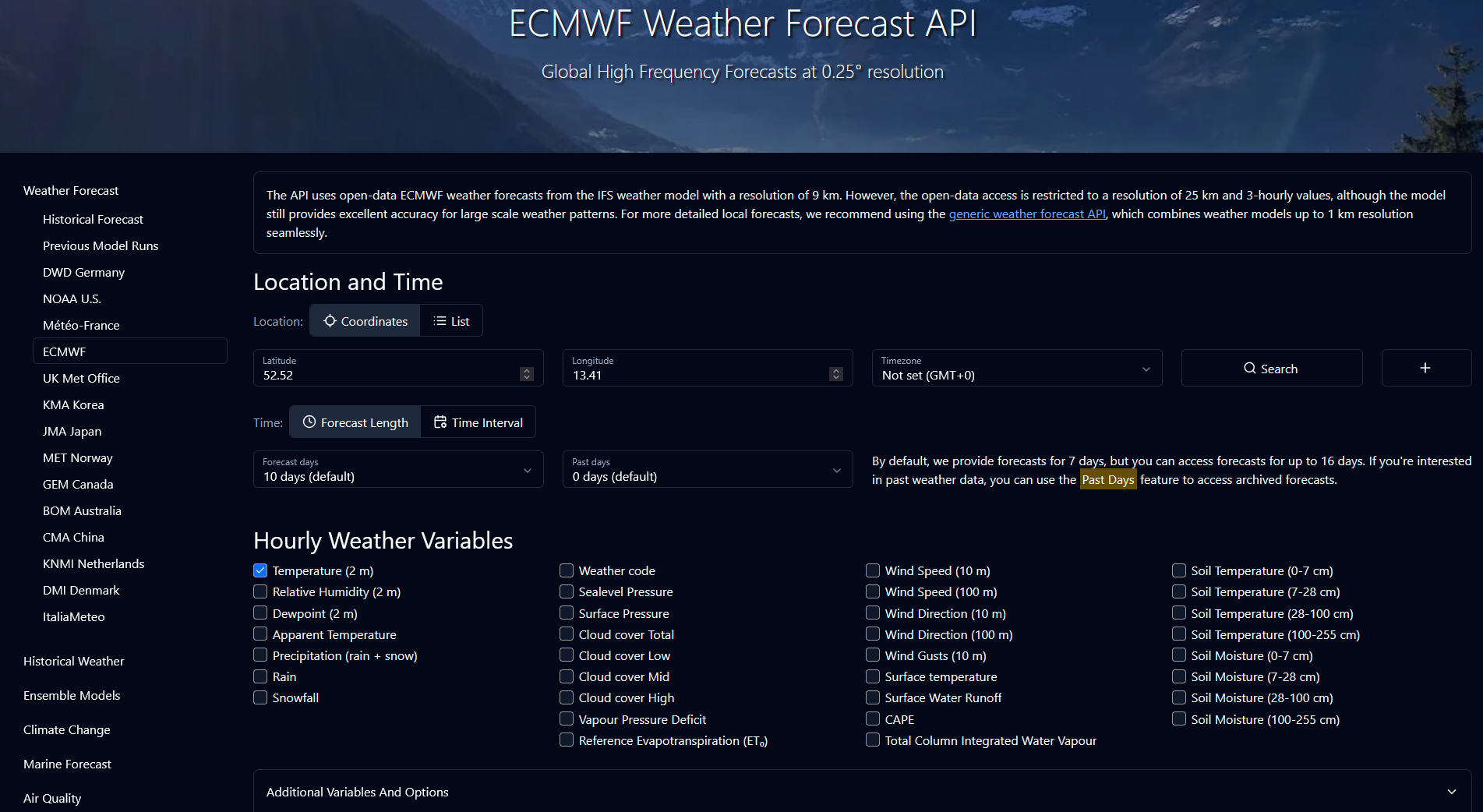
For a full list of other locations, where you can find open data available, visit the ECMWF open datasets website.
Copyright Statement: Copyright “© 2025 European Centre for Medium-Range Weather Forecasts (ECMWF)”.
Source: www.ecmwf.int
Licence Statement: This data is published under a Creative Commons Attribution 4.0 International (CC BY 4.0). https://
creativecommons .org /licenses /by /4 .0/ Disclaimer: ECMWF does not accept any liability whatsoever for any error or omission in the data, their availability, or for any loss or damage arising from their use.